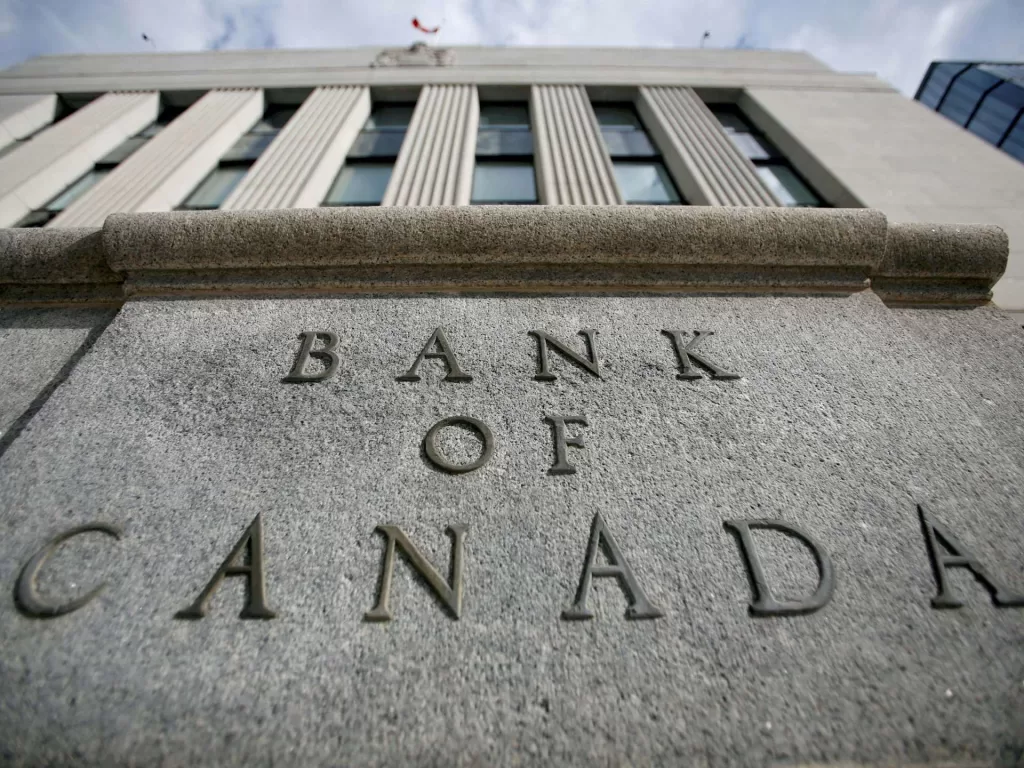Wednesday marked the third consecutive cut, with the central bank citing continued easing in broad inflationary pressures.
The Bank of Canada (BoC) has trimmed its key policy rate by 25 basis points to 4.25 percent as forecast and Governor Tiff Macklem, citing weak growth, said a larger cut could be in order if the economy needs a boost.
The bank had held its benchmark rate at a two-decade high of 5 percent for a year until June when it started the easing cycle.
Wednesday marked the third consecutive cut, with the bank citing continued easing in broad inflationary pressures.
Overall inflation fell to a 40-month low of 2.5 percent in July, still above the BoC’s target of 2 percent. But the economy now looks to be weaker than the bank had forecast just six weeks ago.
“With inflation getting closer to the target, we need to increasingly guard against the risk that the economy is too weak and inflation falls too much,” Macklem said.
Second-quarter growth was better than expected at 2.1 percent, but it flattened out in June and is likely to be anemic in July. Growth could fall short of the 2.8 percent annualized third-quarter advance the bank projected in July, economists say.
Macklem echoed their comments at a press conference, saying that while he expects growth to pick up in the second half of the year, there could be some risks to the projections.
A weakening economy has hurt the country’s ability to absorb a sharply rising workforce, leading to a rise in unemployment, prompting calls for continued rate cuts.
Some economists are predicting that slow growth could prompt the bank to go for a jumbo cut of 50 basis points (bps) in October or December. Macklem said a bigger cut was possible if the economy weakened more than expected.
“We will be assessing the data as it comes out, and [if] we need to take a bigger step, we’re prepared to take a bigger step,” he said.
Financial markets see a 93 percent chance of a rate cut of 25 bps in October while a rate reduction in December is fully priced in.
“With growth faltering instead of picking up as officials had forecast back in July, the risk is that central bankers will need to slash rates in October by 50bps instead of 25bps to spur a recovery,” Royce Mendes, head of macro strategy at Desjardins Group, wrote in a note.
Weakening economy
Since July, the six-member governing council has pivoted from seeking only to control inflation to supporting the economy even as it fights resilient inflation in some pockets.
“Overall weakness in the economy continues to pull inflation down,” Macklem said, adding that stubbornly high price pressures in shelter and some services were holding inflation up.
If inflation continues to ease broadly in line with the bank’s July forecast, it is reasonable to expect further rate cuts, he said.
The BoC will announce its next decision on October 23 and also update its economic projections.
The last time the bank cut rates on three consecutive scheduled announcement dates was in 2009, during the global financial crisis.
The BoC became the first Group of Seven (G7) central bank to start cutting rates.
The European Central Bank followed with a rate cut in June, but has held steady since then. It is widely expected to cut this month.
Markets are pricing in the first rate reduction by the United States Federal Reserve this month.
